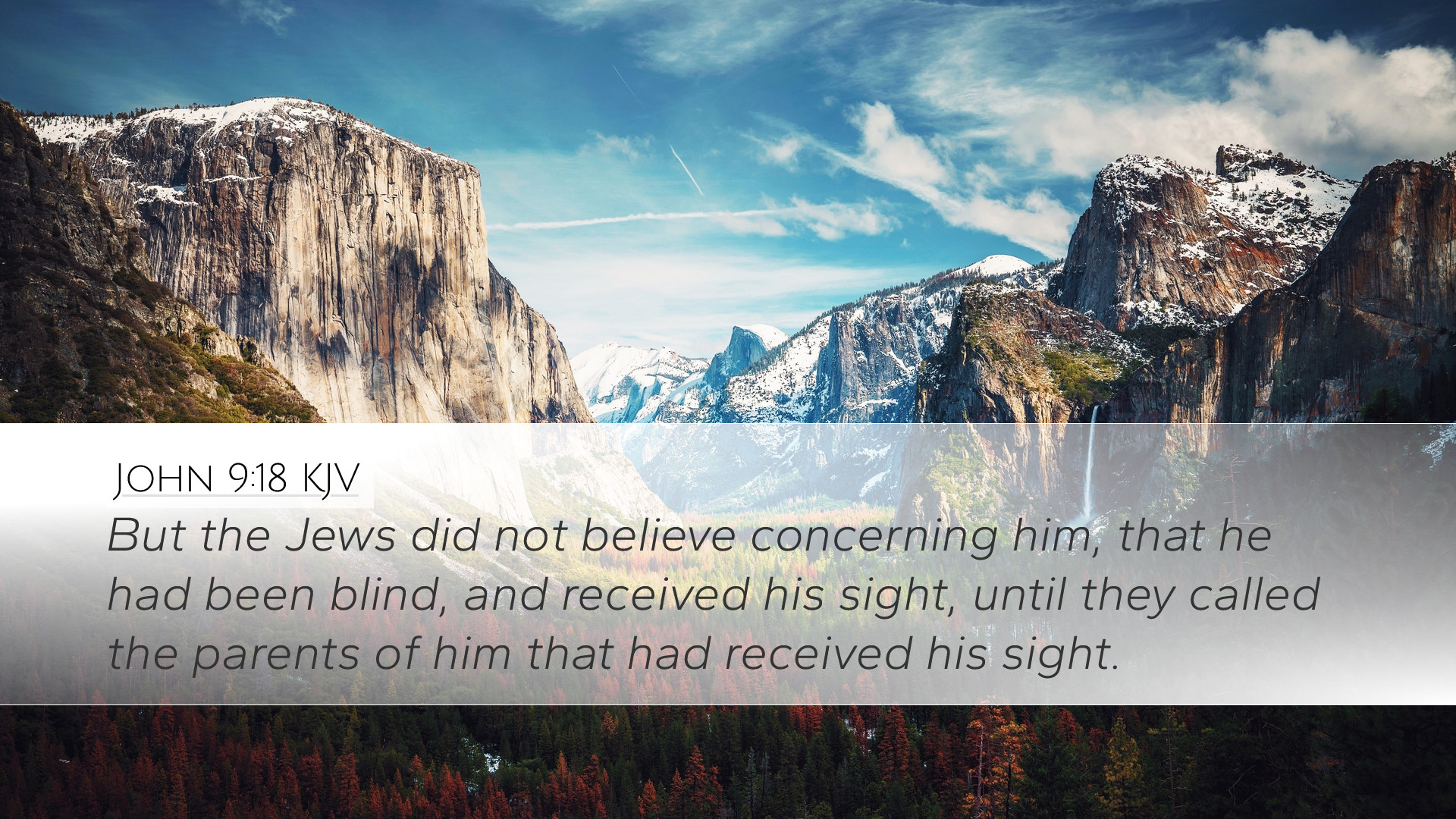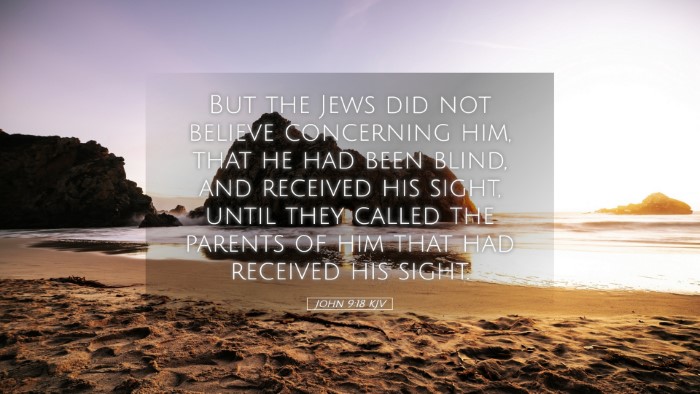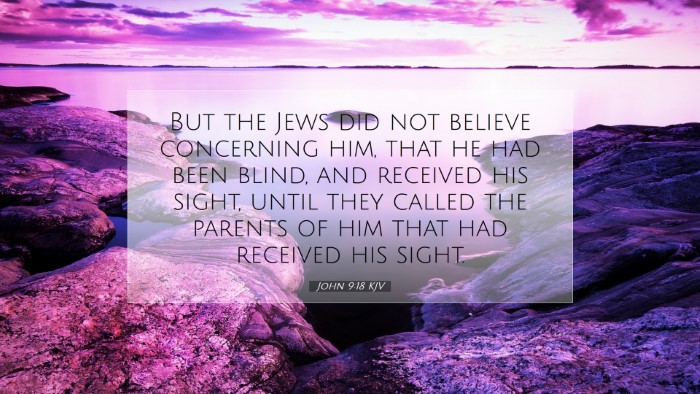Commentary on John 9:18
John 9:18 reads: "But the Jews did not believe concerning him, that he had been blind, and received his sight, until they called the parents of him that had received his sight."
This verse serves as a pivotal moment in the narrative of the healing of the man born blind. It reflects both the disbelief of the religious leaders and the intent to investigate the miracle more closely. Below, we will explore insights from various public domain commentaries to provide a deeper understanding of this passage.
Contextual Background
The context of John 9 involves Jesus performing a significant miracle—healing a man who was blind from birth. This act not only demonstrates Jesus' compassion but also sets up a confrontation with the Jewish authorities about His identity and authority.
Disbelief of the Jews
The initial disbelief among the Jews signifies a deeper issue regarding their hearts and perceptions towards Jesus' ministry. According to Matthew Henry, the Jews' refusal to believe indicates a hard-heartedness that characterizes their approach to Jesus. They were quick to dismiss the miracle rather than accept the evidence before them.
Albert Barnes expands on this by stating that their skepticism was rooted in their preconceived notions about the Messiah. The healing challenged their understanding and threatened their established authority. Their demand for evidence was a reflection of their spiritual blindness despite the physical healing they were observing.
The Role of the Parents
The verse mentions that the Jews called the parents of the man who was healed. This action points to a strategy of verification and an attempt to discredit the miracle. Adam Clarke notes that the investigation into the man’s parents serves as an illustration of the lengths to which the religious leaders would go to maintain their position and authority. They sought tangible proof of the man’s condition prior to his healing, indicating doubt in the narrative of restoration.
The calling forth of the parents can also be seen as an attempt to intimidate both them and their son. It highlights the oppressive atmosphere surrounding those who dared to acknowledge Jesus' miracles and contend with religious authorities.
The Miracle's Implications
The miracle itself was intended not only for the man born blind but also served as a sign for others to recognize Jesus' divine authority. Matthew Henry explains that this act of healing illustrates Jesus as the light of the world, offering spiritual insight even to those who were physically sighted yet spiritually blind.
This encounter emphasizes the radical shift necessary for individuals to embrace faith in Jesus. The disbelief of the Jewish leaders juxtaposed with the miraculous healing of a once blind man suggests that spiritual insight requires more than physical evidence; it demands an openness to the transformative work of Christ.
Theological Reflections
The skepticism of the religious authorities and the process of verification reveal significant theological reflections on faith, doubt, and the nature of true belief. Albert Barnes argues that faith is not merely about seeing miracles; rather, it is a deeper trust in God’s character and purposes.
Additionally, this narrative serves as a reminder for pastors, theologians, and scholars about the danger of religious pride. The Jewish leaders’ insistence on denying the miraculous raises questions about how tradition and personal bias can blind individuals to the truth of God's work among them.
Conclusion
John 9:18 encapsulates the theme of spiritual blindness and the challenge of belief in the face of miraculous evidence. Through the insights gleaned from public domain commentaries, we understand that the narrative urges an examination of the believer’s heart towards the workings of Christ.
As we reflect on this passage, it is essential to consider the implications of our faith: Are we open to seeing God at work in ways that challenge our understanding? Are we willing to confront our doubts and seek a deeper relationship with Jesus? The story of the man born blind serves as an invitation to all who are spiritually searching.


